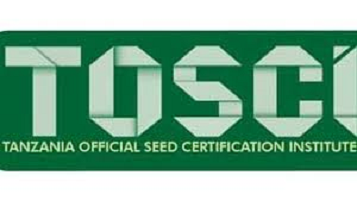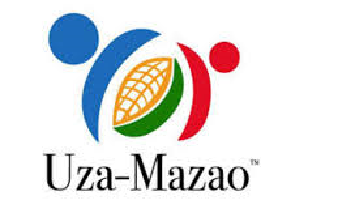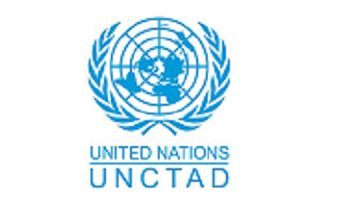SMART AGRIPRENEURSHIP INNOVATION CENTRE (SAIC)
1. EXCECUTIVE SUMMARY
This is a concept note for the establishment of a Smart Agripreneurship Innovation Centre (SAIC) at Dakawa-Morogoro, which will also be known as KILIMO NA UJASIRIAMALI (KIU) CENTRE under Mrutu Agro-Solutions Company Limited. The centre will pave the way for implementation of different programs and projects such as multi-agricultural demonstration farms, training programs (short courses), business incubators, education institutions, agro clinic and laboratory services, financial services, business development services, process development services, value chain coordination, legal and technical advisory services, marketing, climate smart agriculture, Product development and value addition facilities, agro-tourism activities, hotels and conference centre for events. People will come to see, will come to learn, will come to buy and will come to sell therefore KIU will EMPOWER and encourage youth and women to form socio-economic groups for production, job and value creation for others as they will become engine driving new agribusiness and entrepreneurial enterprises as well as rural and urban transformation for making a Peaceful World.
1. BACKGROUND
· The ProblemTanzania like many countries in Africa has the youngest population in the world and each year millions of its young people seek to enter the country’s workforce, too many without success. About one million (1,000,000) Tanzanian youth, join the labour market each year, but only about fifty thousand (50,000) (5%) are employed in the formal public sector or formal private sector. The rest, which is about nine hundred and fifty thousand (950,000) (95%) join the unemployed youth group in the informal private sector, ending up doing small informal activities. This highlights the great challenge of youth unemployment but can also be seen as an opportunity for them to become the engine driving new agriculture and agribusiness enterprises as well as rural transformation. But youth face many challenges in trying to earn a livelihood from agriculture and agribusiness. This then calls for creativity, especially amongst the youth, but that creativity faces a deadlock where ideas cannot meet capital, and when they do meet capital, the ideas lack mentorship to be transformed into full fledge businesses. Consequently, there is need for a solution that not only encourages creativity, but also capitalizes the created ideas, and mentors the newly capitalised ideas into business units that can compete and add value to the investors, and customers.
· The solutionThe Smart Agripreneurship Innovation Centre will empower both urban and rural farmers, youth and women to learn new and innovative best practices in smart agribusiness methodologies. These include seedlings nursery, artificial intelligence in agriculture, hatchery, drones technology, irrigation systems, aquaponics, hydroponics, increase in cow and goat milk production using barley and maize fodder mixes, composting, biogas harnessing/usage and organic pesticide and permaculture. The introduction of fish ponds and poultry rearing will help communities mitigate and adapt to climate change. By demonstrating systems and providing the requisite training and support, this activity will enable farmers to generate income while producing quality products.
. About IncubatorsIncubation has been identified as a powerful process of business enterprise development because incubation and prototyping creates the bridge between innovation and commercialization. It is the process of supporting start-up businesses in order to build entrepreneurship capability for self-sustenance. This involves providing common facilities such as physical space, shared services, skills training and business legal advice to facilitate the operations of selected entrepreneurs and assist them until graduation when they have capability on their own. Types of innovation expected from the platform will include but not limited to, Biophysical science, Genetic (Varieties & breeds), Production system and practices, Research and Development.
Nonetheless, agribusiness can be profitable for youth with the right skills. Rural enterprise is being advanced along agricultural and livestock commodity value chains within the context of professionalized agriculture. As a result, the practical training project shall link the youth with access to agricultural and livestock resources are needed now than before. In this way, the quality of training along agricultural value chains, terms of credit and the agricultural technologies, commodities and markets being advanced have a huge influence upon both the livelihoods of youth and the process of agricultural transformation. The planned KIU Centre will increase farmers’ knowledge in these areas and will help them adopt practices that are profitable, environmentally sound, and contribute to quality of life. The KIU Centre will take knowledge to the farmers. The training will be designed around the concept of the farm business cycle as described using the following diagram.
The Smart Agripreneurship Innovation Center will led to fulfilment of sustainable development goals, poverty reduction, zero hunger, addressing unemployment problem, malnutrition, urban migration, soil degradation, population increase, pollution and climate action by teaching our clients environment friendly agriculture practices. Aquaponics combines growing fish and plants in a controlled environment. It relies on fish waste to provide organic food and nutrients for plant growth. The plants clean the water that is recycled back to the fish. Consequently, there is low water use and waste. Pollution, pesticides, and use of chemicals are drastically reduced in these systems. Hydroponics is concerned with growing plants without soil and is the plant production part of the aquaponics system. Hydroponics is exceedingly efficient utilizing 10% of traditional open field agriculture. When practiced under greenhouses, the climate risk is reduced tremendously. To develop thriving innovation-based stakeholders including smallholder farmers, pastoralists, youth and SME’s in agricultural and value chains, contributing to development and profitable conservation of renewable natural resources in Tanzania
1.1. Purpose:
The purpose is to work with the youth to help them to build knowledge and prepare themselves as future farmers and to accelerate commercialization of agricultural knowledge and innovations in Tanzania
1.2. Objectives
SAIC aims to strengthen agribusiness and entrepreneurship activities and to contribute to increased productivity and income, employment creation, sustainably managed farm acreage and agricultural production as well as improved service delivery to farmers. The centre will provide technical and business development assistance, information, training and direct assistance to the youth in the production, processing, development and marketing of value-added agricultural commodities and products to accelerate economic and social development of the youth in Tanzania therefore contributing to national development agenda in Tanzania and the 17 sustainable development goals of the United Nations faster and productively.
1.2.1. Specifically the SAIC is designed:
- i. To promote agriculture and livestock development through market-led technological development and the adaptation of agricultural technologies in the Tanzania,
- ii. To support the sustainable production of agricultural and livestock products and services and enhance local, national, regional and international competitiveness of these products.
- iii. To specifically focus on food security, integrated agriculture for development, and the sustainable utilization of renewable natural resources in Tanzania.
- iv. To train and mentor, change the negative attitude of the young men and women farmers in Tanzania towards agriculture and livestock work as drudgery.
2.1. Targeted clients
The main target of SAIC will be youth, women and farmers as the primary beneficiaries of the trainings and related services, particularly those with interest to invest in agriculture; farming as business; individual and groups of smallholder farmers and livestock keepers and potential entrepreneurs with a special focus on the youth. This activity aims to change the perception of farmers by upgrading their knowledge and skills. This will be particularly appealing to youth who wish to use their expertise locally and internationally. Increased knowledge and technical skills will provide employment opportunities abroad. Furthermore, such valuable skills will enable them to engage in research and collaborative endeavours. The mission is to empower youth, women and farmers to increase their efficiency and yield and demonstrate how to increase profits with sustainable and ecological solutions. Almost 50,000 indirect jobs are expected to be created. This will led to fulfilment of sustainable development goals, poverty reduction, and zero hunger and climate action by teaching our clients environment friendly agriculture practices.
2.2. Approach
The SAIC Centre project is unique in that it is a land-based project that will offer aspiring and young farmers an opportunity to establish their own independent farming enterprises with on-site support from its staff and that partners like SUA. SAIC approach shall be all about adding value to agriculture through the use of proven innovative methods. The center’s innovation strategy is 1) to apply generated ideas for value-added agriculture, 2) to select the best ideas that have the potential to create the greatest return for new and existing agri- industry in the rural and peri-urban areas of Tanzania, and 3) to implement those ideas in the marketplace to grow the country’s economy 4) to disseminate information to the youth agriculture and livestock who are looking for ways to take those ideas to commercialization.
The SAIC will develop best-practice in a model that will have but not limited 18 essential pillars:- 1. A sound theoretical knowledge base in agricultural technology and innovations;
- 2. Competency based practical skills training in mechanization and agricultural technologies;
- 3. Training in post-harvest technologies and practices;
- 4. Product development, food processing and quality control;
- 5. Training in farm business management;
- 6. Pasture management and hay production;
- 7. Agronomic practices and crop production;
- 8. Livestock management and animal breeding;
- 9. Record keeping and inventory control;
- 10. Farm infrastructure development and maintenance;
- 11. Training in appropriate life skills;
- 12. Training on entrepreneurship and business skills;
- 13. Training on financial literacy;
- 14. Effective follow-up and support services.
- 15. On-farm training and production activities by project beneficiaries.
- 16. Invest in production of quality feed resources adequate to meet own demand and demand by programme beneficiaries.
- 17. Link off-takers and programme beneficiaries.
- 18. Artificial Intelligence
- · Supply agro-materials for the project and construction of different farm structures, Provide technical facilitation and training packages and other activities as will be agreed among project stakeholders for the smooth implementation of the project.
- · Provide market linkage for the agricultural products to be produced
- · Recruit project beneficiaries i.e Youth men and women
3.0. Potential partners
Commercialization of agriculture requires many participants from private sector, as well as service providers and economics developers, farm machinery companies, financiers, and often government and academia. SAIC will strive to bring the necessary mix of partners to the table to benefit the agri-businesses that are interested in moving forward with innovations. Building these bridges is essential to innovation success; therefore we invite potential interested partners to collaborate with.
In view of the above, Mrutu Agro-solutions company Ltd will sign MoUs with public institutions and private sector including organizations. The MoU’s will guide the establishment and implementation of a long-term partnership for the development and implementation of the proposed program to support strategic and integrated investments along the agricultural value chains in Tanzania. Partnerships between various agencies, universities, and non-profits are also more likely to receive funding from certain types of foundations and government and grant programs.
Within the broader strategy of Tanzania’s economic development-led industrialization policy, it is envisioned that the proposed project will contribute to the general rural transformation in Tanzania. Extension services ranging from the use of improved farming technologies (e.g. improved seed production techniques, improved agronomic practices, integrated pest management, animal husbandry and agroforestry, post-harvest technologies and mechanization etc.) and market-oriented information and communication and advisory services, to name a few, will be provided through the SAIC.
In addition to providing information and improving communication and capacity development activities, the agricultural extension services at the SAIC will help in linking young farmers with institutional support services such as input supply, credit, cooperative promotion and marketing services. The SAIC is expected to serve as a hub for the youth who are the future farmers to receive advisory services and information, training and skills development through practical training and demonstrations on improved technologies and sustainable agricultural practices.
In order to be competitive and take advantage of the new opportunities that are arising young farmers increasingly have to adapt their farming practices to market changes and improve efficiency, profitability and income.
3.1. Brief profiles of Mrutu Agro-solutions (key partner)
3.1.1. Mrutu Agro-Solutions Company Ltd
Contact person: Mr.Philipo Fahamuel Mrutu, Managing Director: email address: mrutu.agrosolutions@gmail.com/ info@mrutuagrosolutions.co.tz,Phone number: +255753442903, Website: www.mrutuagrosolutions.co.tz
MRUTU AGRO-SOLUTIONS COMPANY LIMITED is a youth and professional lead start up Multi-Agribusiness Company established for the purposes of Agribusiness Development and Consultancy, Seedlings and Seeds production and supplying activities, supplying Agro-Materials, Wholesale and retail trade of agro products, Other business support activities, support activities for crop production, support activities for Animal production, Processing Agro-products, using innovation and technology to provide services in fish ponds constructions, Installation of Irrigation systems, greenhouse and solar dryers constructions, soil testing and farm preparation activities, farm management services, farmers trainings, Agribusiness and Entrepreneurship training, Farm visiting and other agricultural related support services depending on customer’s needs. It is the Private Limited Company established in the United Republic of Tanzania under the companies Act, 2002 (CAP 212) and registered by the Business Registration and Licensing Agency (BRELA) on 10th March, 2021 with the registration number 151143326. Indeed, the company is registered with the Tanzania Revenue Authority (TRA) and assigned the Taxpayer Identification Number 151143326. We are also Licensed Trading Company by the Trade Office, Morogoro Municipal Council with Business number B 3624510. Currently the company office is located at Morogoro Farmers’ Cooperative Union (MOFACU), station road, plot No.20 Zone II.
Therefore, in the implementation of this project, Mrutu Agro-Solutions Company Ltd will:OUR STAKEHOLDERS












Tembelea na jifunze zaidi katika chaneli yetu
MRUTU AGRO-SOLUTIONS WASHAURI WAKULIMA KULIMA KILIMO BIASHARA
Smart Agripreneurship Innovation Centre launching at Mrutu Agro Solutions Company Limited.
Mdahalo wa Kitaifa wa Kumbukizi ya Hayati Edward Moringe Sokoine 08/04/2024; SUA Morogoro -Tanzania.
Get in touch
We are the best agro-solution campany in tanzania. We have served about more than thousands of clients in Agricuture, Agro-busness and entrepreneurship
Lets talk about the Agro
We work Monday-Friday (8am-5pm)
Monday-Friday (8am-12pm)
if you have any inquiring pleas contact us we available all time 24hrs
- Location: Station Road Street, Ushirika housing
- +255753442903
- info@MrutuAgroSolutions.co.tz